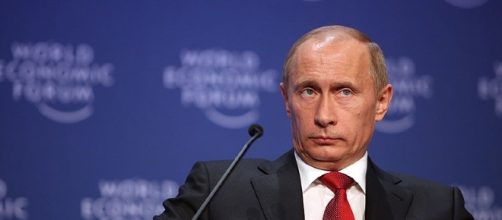Between 2015 and this year Vladimir Putin gave a series of exclusive interviews to American film Director Oliver Stone. The contents of these interviews are going to be released in a multiple part "Showtime" feature, but some of the more riveting portions have been released early.
When asked if the U.S. would emerge victorious in a “Hot War” between two nuclear powers, the enigmatic Russian leader said that in his view that no one would survive a conflict of that magnitude.
The question at hand isn't academic and given the brazen disregard that President Trump has for diplomacy, we may want to take Mr.
Putin's words very seriously. While the USA does have a formidable military arsenal, when it comes to strategic nuclear weaponry, they are evenly matched by both Russia and China from a practical perspective.
Trying to win
It has been a long time since anyone “won” a war. In the classical European model, a war was declared against a nation, by another nation, and then terrible things happened until one of the two nations gave up.
Of course from a practical perspective, given the incestuous nature of the Continental monarchies, a European conflict was never a two-party affair. But that isn't the point. What I am driving at is that “War” is a concept that no longer relates to the geopolitical situation that we now live in.
Take the conflict in Syria and the multifaceted nature of the combatants. It would be easy to assume a 19th-century mentality and assert that if Assad was gotten rid of, everything would be lovely. But doesn't work that way anymore.
Libya is one example of why this mentality is no longer relevant, and Iraq is another. When Qaddafi was unceremoniously retired via a painfully placed combat knife, Libya didn't benefit from it. Now it is one of the few places on earth where humans are openly traded as slaves, and there is a flood of refugees from their coasts risking life to gain access to better shores over the horizon.
So no winner there. But NATO sure did bomb the s*** out of the Libyan military targets, and anything else that seemed like a very “war winning” thing to do.
No more goals
The underlying issue is that nations no longer fight “wars” in the way they existed in the past, nor do conflicts resolve themselves as they would've 100 years ago. In the wake of a total victory by an opposing force, there was a relative calm restored to the region.
Think Berlin, in 1946. It was a bloody, awful calm. But a calm nonetheless.
Today populations aren't slaughtered to the point where a fight is given up. Instead, wars are fought with political and economic motives in the forefront. The actual goal of a war in the background, if it is considered at all.
When Germany was brought to heel in the wake of WW2, there was no conflict possible, as the will to fight had left the nation.
There were no resources left, no buildings, no industry. Nothing. Wars, as the term is used classically don't end on political timetables, nor do they produce viral content for social media.
Without a compass
Wars are terrible things that grind on into a horror that is unimaginable when they begin. That is what Mr. Putin is describing, and it is perhaps why he touches on it so briefly. In the Russian mind, a terrible conflict is only a few generations removed from their day-to-day reality. The Russian nation lost more than 10,000,000 people during the Second World War, and this isn't forgotten easily.
The European theater of combat was brought to a close by the Russian army, who fell mercilessly onto Germany once Nazi lines broke.
The U.S. didn't have the manpower the Russia had, nor did they have anything to match the T-34 in either quantity or ability to deliver ordinance.
In the sense that the Russians have a Stalingrad, the U.S. is simply a debutante on the world stage. For the population in the U.S .wars are a thing that happens in other places, and can't happen at home.
That is perhaps why they don't understand how U.S. missiles in Poland could irk Putin, as though the U.S. has a right to put potentially atomic weapons wherever it wants. If Russia began to arm the Mexican border with atomic weapons, perhaps the people in Missouri would feel some empathy.
The U.S. has felt the fallout of war, with the physically and psychologically wounded veterans serving as a reminder.
But when it comes to losing whole generations to conflict, there is simply no comparison between the U.S. and Russia.
Unlike the highly sheltered American populous, Mr. Putin has no illusions about war. We can only hope that other powerful leaders have his reverence for what is possible when we venture out into the unknowns of human depravity.


